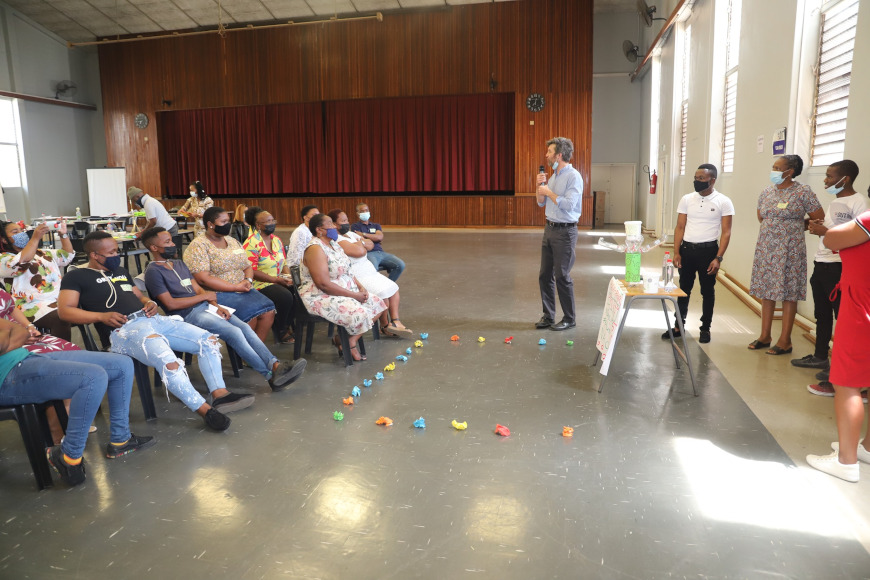The Durban University of Technology (DUT) through the Innobiz DUT Centre for Entrepreneurship and Innovation Midlands Campus recently hosted a two-day train-the-trainer workshop under the sprouting entrepreneurs programme in collaboration with the Austrian Federal Ministry of Education, Science and Research (BMBWF).
The programme was hosted by Dr Matthias Forcher-Mayr of the BMBWF and was attended by educators from Sinathing Primary School, Nansindlela Primary School, Amakholwa Secondary School, Izwilesizwe Secondary School, Kwampumgose High School, Inzuzwenhle Primary School, Ekukhanyeni Special Needs School, Funulwazi Primary School and Phayiphini High School.
The aim of this programme was to inculcate the culture of agricultural entrepreneurship in schools through educating the teachers on the importance of opening and encouraging learners to start and manage their own small gardens.
Dr Forcher-Mayr ploughed off the session with an activity where teachers were asked to share their school gardening activities, ideas varied from seedling nurseries, hydroponic tunnels farming and traditional crop production. The teachers also shared creative ideas around challenges such as water shortages and lack of space.
Zandile Gwamanda, a Grade 4 and 5 Educator at Ekukhanyeni Special School expressed that they started the garden initiative to teach students gardening skills and instill an entrepreneurial mind-set.
“Special needs children have a lot of difficulties and they struggle with many activities but they are very good with practical activities such as gardening, sewing and beaded work,” she said during a presentation.
Gwamanda also shared that she would encourage other schools to participate in such programmes so that teachers can be exposed to various forms of learning and teaching.
“Learners as individuals in the classroom are not the same, some might prefer theoretical and others thrive in practical learning spaces and such agricultural activities is where they realise their true potential,” she added.
To conclude the Day one programme, the teachers were given an opportunity to plan and present their new and improved gardening ideas using all the information shared during the programme. The teachers shared their goals for the gardens, some of the goals included fighting poverty and food insecurity, assisting children and families in need and encouraging the culture of healthy living.
Furthermore, they also shared the timelines for their projects, what vegetables they will be planting, which grades are more suitable to participate in this project and what sort of promotional activities they will use to sell the vegetables.
On Day two of the training the teachers participated in various practical activities that challenged them to work together with limited resources and come up with creative solutions using what they have. The participants were challenged to create an object they will use in their gardens using recycled material, this activity was aimed at counteracting social challenges such poverty, water shortages and land pollution.
Dr Forcher-Mayr commended the teachers for devoting their time to join this entrepreneurship workshop.
“Entrepreneurship is important, not just from an entrepreneurial perspective but also from an initiative perspective, we want to contribute through the education system to producing future citizens that engage in challenges that are there in society because that is needed for transformation,” he added.
Pictured: Dr Forcher-Mayr addresses the teachers at the workshop.
Nontethelelo Mzizi


